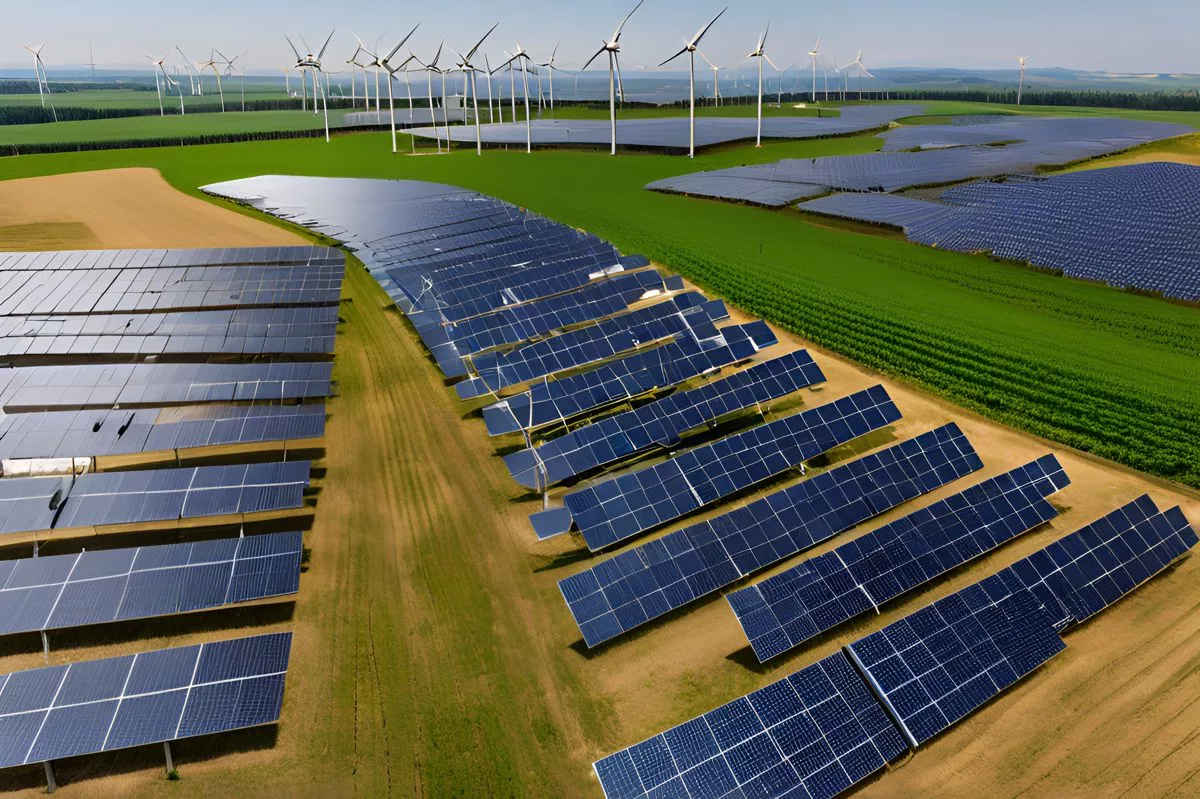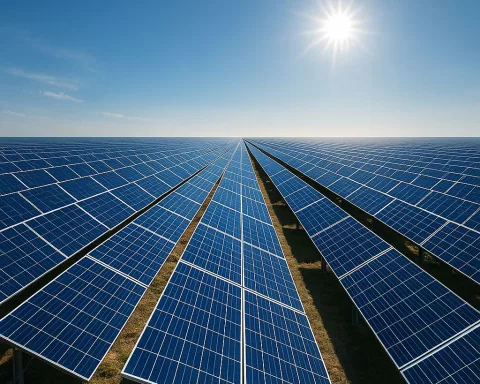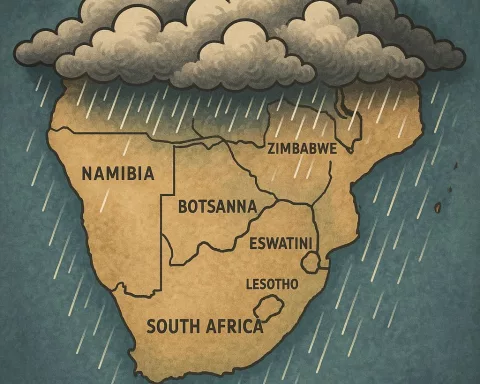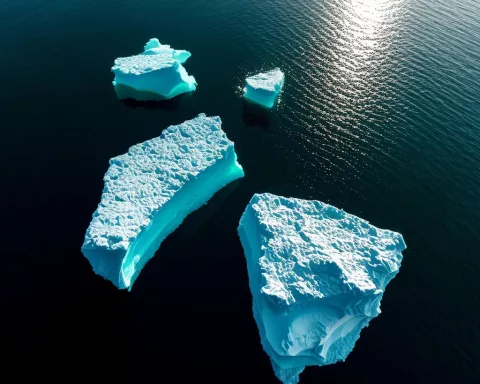Climate change is a real and urgent crisis that poses physical and transition-related threats to South Africa. The country is vulnerable due to its increased warming rate, which results in droughts, fierce storms, and rising sea levels that endanger its food and water supply, infrastructure, and the health of its inhabitants and wildlife. However, the transition process could provide opportunities for voluntary decarbonization and significant “climate returns” for investors. To ensure fairness and equity, comprehensive changes in policy, law, technology, and market are required, and addressing social risks, particularly potential job losses, is fundamental.
The Criticality of Addressing Climate Change
Climate change is an urgent crisis that cannot be ignored. Sub-Saharan Africa is particularly vulnerable due to its heightened warming rate and risks associated with physical and transition-related threats. South Africa faces significant transition risks related to the global movement towards a low-carbon economy, which requires comprehensive changes in policy, law, technology, and market to ensure fairness and equity. However, the transition process could provide opportunities for voluntary decarbonization and significant “climate returns” for investors.
The Criticality of Addressing Climate Change
The necessity of addressing the ongoing climate emergency and ensuring a smooth transition to renewable energy on a global level cannot be overstated. The gravity of this issue was asserted in the lead-off talk given by Deputy Minister Narend Singh at the FEDUSA Climate Change and Just Transition Summit held in September 2024. This essay discusses Singh’s views on the risks linked with climate change, the socio-economic fallout of the transition, and the potentials he spotlighted for South Africa.
Climate change is not a theoretical issue to be addressed in the future; it is a genuine, urgent crisis. The World Economic Forum’s yearly Global Risks Perception Survey (GRPS) reports failure in climate action, extreme weather occurrences, and biodiversity loss as the three most severe global risks anticipated over the upcoming decade. This view aligns with Deputy Minister Singh’s statement that climate issues are no longer the sole concern of international and non-governmental organizations.
Climate Risks Faced by South Africa
South Africa is not immune to this crisis; in fact, it’s facing acute risks. The country is wrestling with both physical and transition-related threats. Physical risks stem from scientific findings that indicate Sub-Saharan Africa’s heightened vulnerability to climate change and its warming at a rate twice the global average. This increased warming results in fierce storms, droughts, and rising sea levels, endangering South Africa’s food and water supply, infrastructure, and the health of its inhabitants and wildlife.
Simultaneously, South Africa is faced with transition risks related to the global movement towards a low-carbon economy. There is significant investment in low-carbon technologies worldwide, and countries are adopting protective strategies for these investments. Singh pointed to the Carbon Border Adjustment Mechanism (CBAM) as a prime example. The CBAM, conceived to create a level playing field for EU manufacturers, imposes charges on non-EU imports based on their carbon content. This could have a considerable impact on South Africa’s economy and international trade relations, particularly in sectors like steel, aluminum, and power generation that heavily depend on coal.
Transitioning to greener technologies could necessitate significant investment, a daunting prospect given South Africa’s current energy infrastructure and economic constraints. This highlights the need for well-planned and possibly cooperative solutions to minimize any negative effects on developing economies like South Africa.
The Opportunities and Challenges of Transition
Despite the risks, Singh pointed out that the climate crisis could also provide opportunities for voluntary decarbonization, in return for concessional funding from developed countries. This could offer substantial “climate returns” for investors. Even though South Africa’s contribution to climate change might be minor in comparison to industrialized nations, its commitment to decarbonization is not only commendable but vital for the world to meet its climate targets.
However, the transition process will require comprehensive changes in policy, law, technology, and market to ensure fairness and equity. Addressing social risks, especially potential job losses, is also fundamental. To tackle these challenges, the Department of Forestry, Fisheries and the Environment (DFFE) and Trade, Industry and Competition (DTIC) have carried out a National Employment Vulnerability Assessment (NEVA) and Sector Jobs Resilience Plans (SJRPs). These initiatives aim to shield vulnerable communities from bearing the economic and social loads resulting from climate change responses.
South Africa’s Renewable Energy Potential and Corporate Commitments
There are ongoing explorations of renewable energy generation potential in regions that are likely to see a decrease in coal activity, with business models being developed in Mpumalanga. Other opportunities include recycling coal combustion waste products, planning a fair energy transition across various sectors, and setting up initiatives for workforce upskilling and job absorption.
South African corporate sector has also taken significant strides towards carbon neutrality. For example, Eskom, the country’s leading greenhouse gas emitter, has pledged to attain net-zero emissions by 2050. Other corporations like Anglo American and Exxaro have set similar goals.
Singh recognized the labor sector as a key player in the transition to a climate-resilient society and a low-carbon economy. He urged labor to cooperate, innovate, and execute solutions that fulfill environmental, economic, and social needs. He also prodded FEDUSA to leverage its position in the just transition discussions and continue raising awareness about the opportunities offered by the just transition.
In summary, Singh’s speech at the FEDUSA Climate Change and Just Transition Summit outlined the risks and opportunities South Africa faces as it navigates the climate crisis and transitions to sustainable energy. Singh’s call for collaboration, innovation, and action is sure to resonate with all stakeholders dedicated to creating a sustainable future.
What is the urgency of addressing climate change in South Africa?
Climate change is a real and urgent crisis that poses physical and transition-related threats to South Africa. The country is vulnerable due to its increased warming rate, which results in droughts, fierce storms, and rising sea levels that endanger its food and water supply, infrastructure, and the health of its inhabitants and wildlife.
What are the climate risks faced by South Africa?
South Africa is facing both physical and transition-related threats due to its heightened vulnerability to climate change and its warming at a rate twice the global average. This increased warming results in fierce storms, droughts, and rising sea levels, endangering South Africa’s food and water supply, infrastructure, and the health of its inhabitants and wildlife. The country is also faced with transition risks related to the global movement towards a low-carbon economy, such as the Carbon Border Adjustment Mechanism, which could significantly impact the economy and international trade relations.
What opportunities does the climate crisis provide for South Africa?
Despite the risks, the climate crisis could provide opportunities for voluntary decarbonization, in return for concessional funding from developed countries, offering substantial “climate returns” for investors. Even though South Africa’s contribution to climate change might be minor in comparison to industrialized nations, its commitment to decarbonization is vital for the world to meet its climate targets.
What is required for a smooth transition to renewable energy in South Africa?
Comprehensive changes in policy, law, technology, and market are required to ensure fairness and equity during the transition process. Addressing social risks, especially potential job losses, is fundamental. The Department of Forestry, Fisheries and the Environment and Trade, Industry and Competition have carried out a National Employment Vulnerability Assessment and Sector Jobs Resilience Plans, aiming to shield vulnerable communities from bearing the economic and social loads resulting from climate change responses.
What is South Africa’s renewable energy potential, and what corporate commitments have been made?
There are ongoing explorations of renewable energy generation potential in regions that are likely to see a decrease in coal activity, with business models being developed in Mpumalanga. Other opportunities include recycling coal combustion waste products, planning a fair energy transition across various sectors, and setting up initiatives for workforce upskilling and job absorption. The South African corporate sector has also taken significant strides towards carbon neutrality, with Eskom pledging to attain net-zero emissions by 2050, and other corporations like Anglo American and Exxaro setting similar goals.
What actions should stakeholders take to create a sustainable future in South Africa?
Singh’s call for collaboration, innovation, and action is sure to resonate with all stakeholders dedicated to creating a sustainable future. Labor is recognized as a key player in the transition to a climate-resilient society and a low-carbon economy, urged to cooperate, innovate, and execute solutions that fulfill environmental, economic, and social needs. FEDUSA is prodded to leverage its position in the just transition discussions and raise awareness about the opportunities offered by the just transition.












